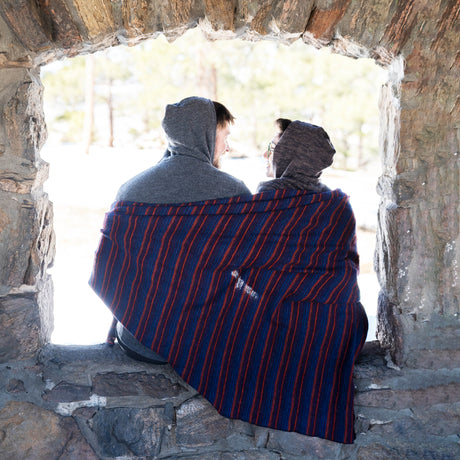by Heather Anderson
The post-trail blues have a lot of causes, ranging from biological (hormone rebalancing, circadian disruption, etc.) to emotional (missing the experience, friends, etc.). The sudden end to months of walking in tune with the sun and a return to life indoors—largely sedentary by comparison—without one all-consuming goal is a shock to the whole body, mental and physical. The experience of this depressed period is almost universal among thru-hikers.
“The sudden end to months of walking in tune with the sun and a return to life indoors—largely sedentary by comparison—without one all-consuming goal is a shock to the whole body, mental and physical.”
Yet, there is another aspect to these blues that I believe relates to a much more universal experience, one that we nearly always associate with death. Post Thru-Hike Depression includes Grief.

A while ago, I read a book entitled “The Grieving Brain.” (It was excellent, and I highly recommend it.) The book begins with a premise that was easy for me—a hiker who has lost several people close to me—to relate to. It likened the death of a loved one to them disappearing off of the “mental map.”
My life is ruled by maps. I use them to plan adventures and to guide me while I’m there. Every time I venture into the mountains my mind lays down mental waypoints, cataloging features, turns, and decisions. This concept of needing to reconcile the deceased’s absence from your mental map made complete sense to me. The brain can conceptualize distance and even “location: unknown,” but it cannot process "location: other.” Just as we are panicked and lost when we can no longer find our location in the wilderness using our maps, we are naturally confused and distraught when our people can no longer be located on any mental map.
So many hikers have told me, "I am the truest/best version of myself on trail."

I have also experienced this deeply. For many years, I came home from a hike and, without understanding what was happening, found myself grieving the loss of Anish. This alter ego was gone from my mental map, associated only with the trail experience. The post-hike depression would linger until I began to plan my next thru-hike. Hope returned as I knew that I would see her again—be her again—as soon as I started walking.
“For many years, I came home from a hike and, without understanding what was happening, found myself grieving the loss of Anish.”
It makes sense that, in addition to the many other aspects of adjustment, this yearning to be our best selves overwhelms us. For the first time in most of our lives, the trail may have provided an opportunity for true freedom. Not freedom of movement, which is what we typically think of, but freedom of being. The trail itself is quite confining—three feet wide and connecting two termini. It is who we are allowed to become when treading it that gives us this heady sense of emancipation. In most cases we are separate from anyone who knows us or our past. We are autonomous in our decision making—freed from others’ expectations or views of us. More-so, on trail we often find ourselves astonished at who we are beyond our own well-rehearsed stories and expectations.
It makes sense then, that when returning home—plunged back into the life that may no longer fit us—we begin grieving a loss of our own identity from our mental map.

Mental resilience and the ability to bring ourselves home is the key to riding the waves of post-trail grief. Mental and Emotional Preparation and Reintegration comprise two entire chapters in my book “Adventure Ready” because the mental adjustments that can come about from a thru-hiking experience are massive and need more discussion. Until we address the heart and soul of such a potentially transformative journey, we cannot grow beyond a cycle of longing.
Journaling and mindfulness work—such as meditation, visualizations, or mantras can be useful during the reintegration phase after your hike. Additionally, seeking the camaraderie of other hikers, stress reduction, and professional counseling can all be extremely helpful in navigating the difficult emotional waters of grief and loss that attend the transition.

In the end, there is no one solution to grief of any kind. It takes time for your brain to remap itself when a loved one dies and it takes time for it to rewire after a monumental experience. It is important to remember that you are capable of navigating this—just as you navigated the mountains on foot. You are not alone in this journey. Give yourself grace as you heal.
“It is important to remember that you are capable of navigating this—just as you navigated the mountains on foot. You are not alone in this journey.”
For more tips on reintegration, trip planning, and more check out “Adventure Ready” available from wordsfromthewild.net or anywhere you buy your books.


















































